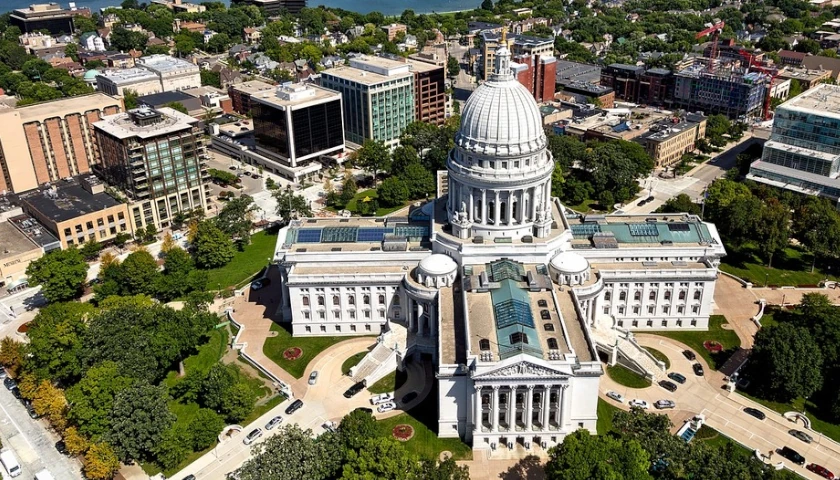The nonprofit Institute for Reforming Government (IRG) on Friday issued a comprehensive analysis of Democratic Wisconsin Governor Tony Evers’s 2023-25 state budget and bemoaned the proposal’s likely impact on job creators and the middle class.
Evers’s spending plan totals $104 billion, $16 billion more than the budget on which the Badger State now operates. If enacted, the new proposal would be the first state budget exceeding $100 billion. It includes massive spending increases in such areas as public education, childcare assistance, “affordable housing” and broadband expansion. Republican lawmakers, who object to the extent of the spending hikes and the governor’s refusal to devote more of the state’s $7.1 billion surplus to tax cuts, promised last week to thoroughly rewrite the plan.
The Delafield-based IRG weighed in with its own criticisms of Evers’s proposal, noting that the governor’s budget would dramatically alter the state’s fiscal outlook, creating a $2.8 billion deficit before 2028. The center-right institute further objected to what its report characterized as unwelcome impacts on Wisconsin students, businesses and families.
“Governor Evers’ proposed budget irresponsibly spends down the unprecedented surplus in a manner that would require lawmakers to eventually either make massive tax increases or deep cuts to public services,” the report stated. “Everyday Wisconsin families deserve real solutions to their economic and educational problems — not an unprecedented expansion of government and bureaucracy in Madison.”
On education, IRG particularly dislikes the governor’s aim to freeze enrollment in the state’s school-choice programs while feeding the public-school bureaucracy a 17.2-percent spending hike. All the while, IRG observed, the state has not allotted $985 million in federal COVID-19 relief designated for schools. The think tank also took Evers to task for seeking an end to the state-university tuition freeze while hoping to grant in-state tuition to students from outside Wisconsin.
The governor furthermore wants changes to labor law that the institute suggests will have deleterious effects on job creation. Those changes include an increase in the minimum wage to $10.25 by 2026 as well as a repeal of the state’s right-to-work law that prevents forced union-dues payments. Other labor-law revisions would affect the taxpayer by reinstating costly prevailing-wage provisions for government contracting work and by requiring project labor agreements that mandate union labor for public works.
Another feature of the Evers budget that has drawn the IRG’s scrutiny is a $290 million item to pay for improvements at American Family Field over the next two decades. The institute insists taxpayers are owed an explanation as to how they can be confident the spending will yield net economic benefits.
While the governor is requesting that the legislature reduce some taxes, IRG laments their modest eventual effects on Wisconsin residents. The report says the 10-percent income tax cut for middle- and low-income filers would result in taxpayers realizing a mean annual savings of merely $200. Evers also would repeal the personal property tax and broaden the research and development tax credit.
And IRG wants the governor to scrap several proposed tax increases, including a $655 million effective hike impacting manufacturers as well as a cap on the long-term capital-gains exclusion amounting to a $339 million tax hike over two years. Evers also seeks $388 million in other revenue increases.
– – –
Bradley Vasoli is managing editor of The Wisconsin Daily Star. Follow Brad on Twitter at @BVasoli. Email tips to [email protected].
Photo “Tony Evers” by Tony Evers. Background Photo “Wisconsin State Capitol” by Basharat Alam Shah. CC BY 2.0.





